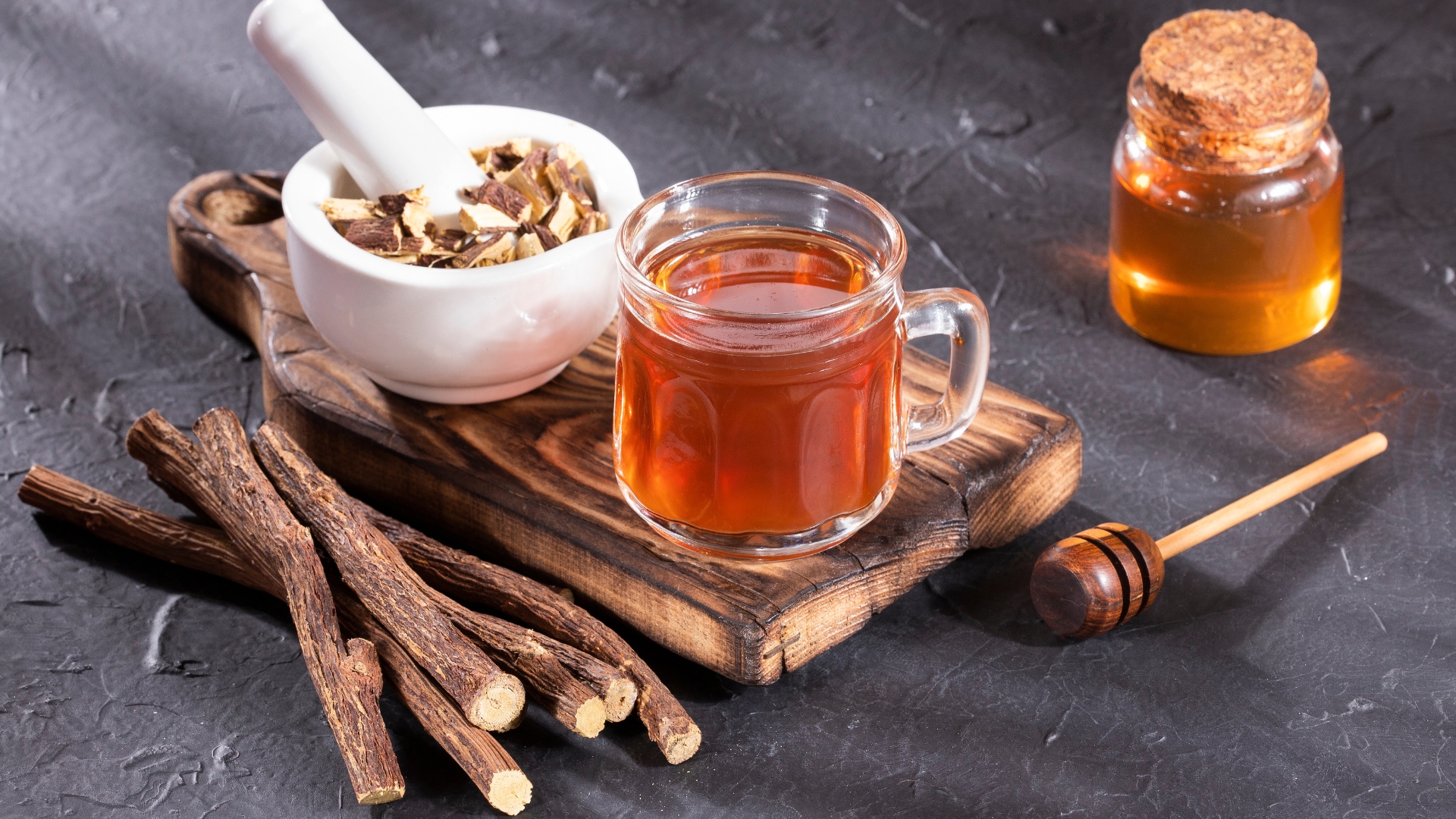
In Ayurveda and traditional medicine, few herbs carry as much importance as Mulethi, also called Licorice Root. Its naturally sweet taste and centuries of use in healing remedies make it more than just a kitchen spice—it’s a powerhouse of wellness. From soothing sore throats to improving digestion and boosting immunity, mulethi continues to stand out as a natural health booster.
Table of Contents
What is Mulethi (Licorice Root)?
Mulethi comes from the root of the Glycyrrhiza glabra plant. It contains glycyrrhizin, flavonoids, and antioxidants—the compounds responsible for its medicinal strength. In Ayurveda, experts call it a “rasayana,” meaning a rejuvenating herb that balances the body and promotes vitality.
Shocking Health Benefits of Mulethi
1. Soothes Sore Throat & Cough
Mulethi eases throat irritation quickly. Its anti-inflammatory and soothing properties reduce cough, phlegm, and hoarseness. That’s why you’ll often find it in herbal teas and cough syrups.
2. Boosts Immunity
The antioxidants in mulethi strengthen your immune system and help you fight infections. Regular, moderate use may keep colds, flu, and seasonal allergies away.
3. Supports Digestive Health
Mulethi relieves indigestion, acidity, and constipation. It stimulates digestive enzymes, improves appetite, and keeps your gut healthy.
4. Relieves Stress Naturally
Mulethi acts as an adaptogen, balancing cortisol levels and helping your body handle stress. Drinking mulethi tea calms the mind and promotes relaxation.
5. Improves Skin Health
Licorice extract brightens skin, reduces pigmentation, and fights acne. Thanks to its anti-inflammatory action, it also soothes irritated skin.
6. Strengthens Respiratory Health
Mulethi works as an expectorant, clearing mucus from the lungs. It provides relief in asthma, bronchitis, and chest congestion.
7. Balances Hormones in Women
Ayurveda often recommends mulethi for women because it regulates menstrual cycles and eases menopause symptoms with its phytoestrogen content.
How to Use Mulethi
-
Mulethi Tea: Boil small pieces of mulethi root in water and drink to relieve sore throat.
-
Powder Mix: Blend mulethi powder with honey to reduce cough and aid digestion.
-
Herbal Kadha: Combine mulethi with tulsi, ginger, and black pepper to build immunity.
-
For Skin: Mix mulethi powder with rose water and apply it to reduce pigmentation.
Precautions & Side Effects
Even natural remedies need moderation. Overuse of mulethi can cause side effects:
-
High intake raises blood pressure due to glycyrrhizin.
-
Pregnant women should avoid it unless a doctor prescribes.
-
People with heart, kidney, or liver issues should consult a doctor before using it regularly.
Safe Dosage: 1–2 grams per day in powdered form usually works well, but it’s always best to check with an Ayurvedic expert.
Mulethi (Licorice Root) delivers much more than sweetness—it’s a natural healer with powerful benefits. It improves digestion, boosts immunity, calms stress, clears the lungs, and brightens skin.
When you use mulethi wisely and in moderation, it becomes a true ally for overall wellness. This ancient herb proves once again that nature offers some of the simplest yet most powerful remedies.


